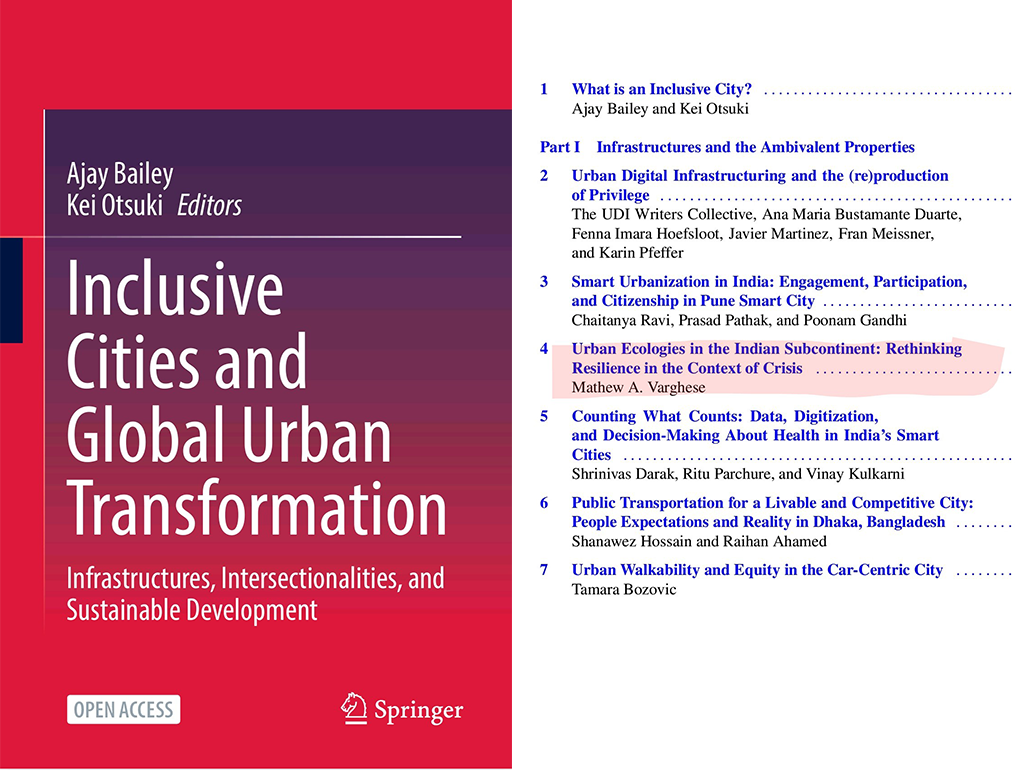PUBLICATION
Inclusive Cities and Global Urban Transformation
Jan 4, 2025

This open access book addresses the problem of global urban development that excludes various groups of people from the benefits of urban growth and sustainable development. Using the intersectionality and agency of urban dwellers and citizens, it outlines possibilities of responsive urban governance that builds on principles of the inclusive city.
One of the chapters in the book, titled 'Urban Ecologies in the Indian Subcontinent: Rethinking Resilience in the Context of Crisis' is written by Mathew A Varghese. It's published by Springr
Abstract
The dominant urban forms emanate from the need for capital to flow loose while labor and life is kept controlled or put in place. Across India, cities have exemplified accumulations by dispossession of ecological niches and human settlements. The new urban plans and smart cities, post 2000, exaggerate changing geographies, land acquisition, and associated rise in land values. The chapter problematizes urban infrastructural plans that portray spaces as empty, or terra nullius, without specific associations, histories, and relationships in habitats. Urban processes and ecological transformations conceal within itself the metabolic relationships between living and the nonliving in ecologies or, in other words, the complex entanglements. The metabolic rifts that Marx talked about become stark in contingent contexts, like disasters, pandemics, or socio-economic catastrophes. In the Indian sub-continent, the floods, COVID-19, and demonetization exemplify such scenarios. The top-down imagination of ecologies like ecological infrastructure, with the add-on provisions to provide capital to corporates, has already resulted in the biggest socio-ecological disasters in the sub-continent. I look specifically into how ecologies of systemic violence can get exacerbated by ecologies of disaster in the form of diseases. Urban spaces in the contemporary times have demonstrated that it is not the virus itself that kills, but it works in synergy with the uneven terrains and absence of care. The chapter also problematizes the idea of resilience to deal with shocks. The idea of resilience became globalized through modes of urbanization as exemplified in resilient cities, competitive urbanism, smart cities, and algorithmic governance. The language and practice of resilience celebrates individual stories of adaptation as if this was a choice. It never addresses the need for fundamental transformations of the conditions that give rise to shocks and crises.
Further reading: https://link.springer.com/chapter/10.1007/978-981-97-7521-7_4